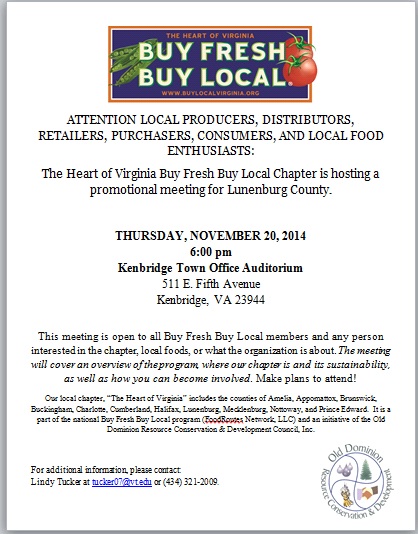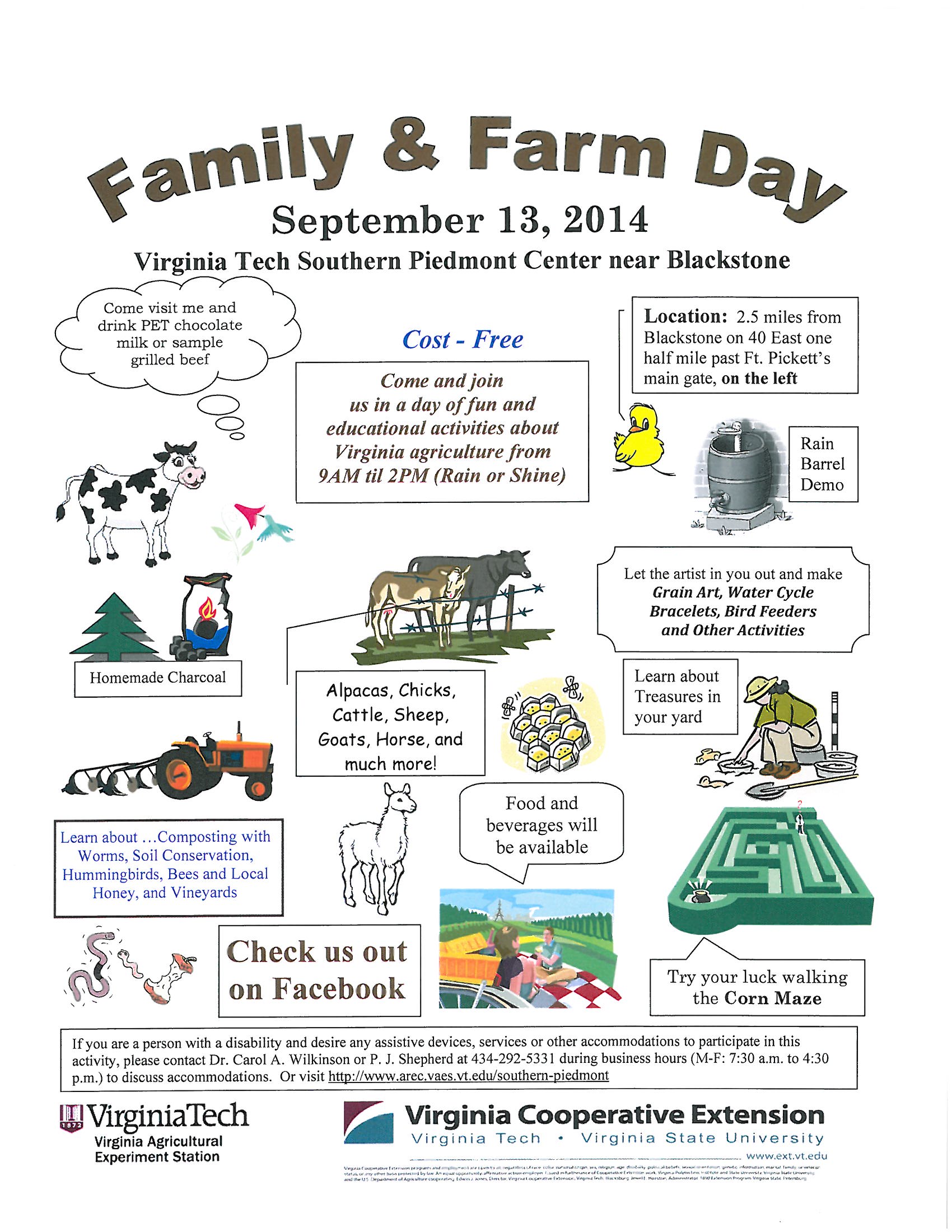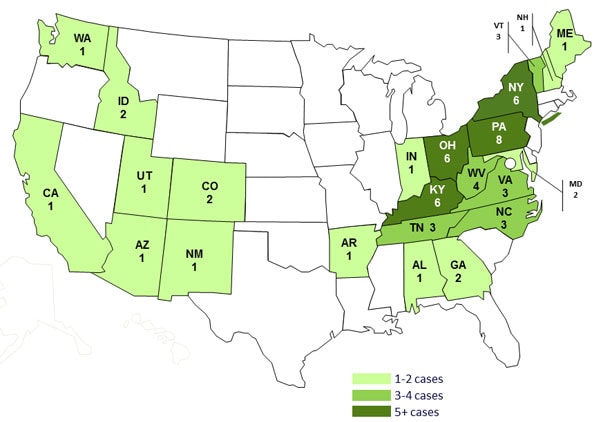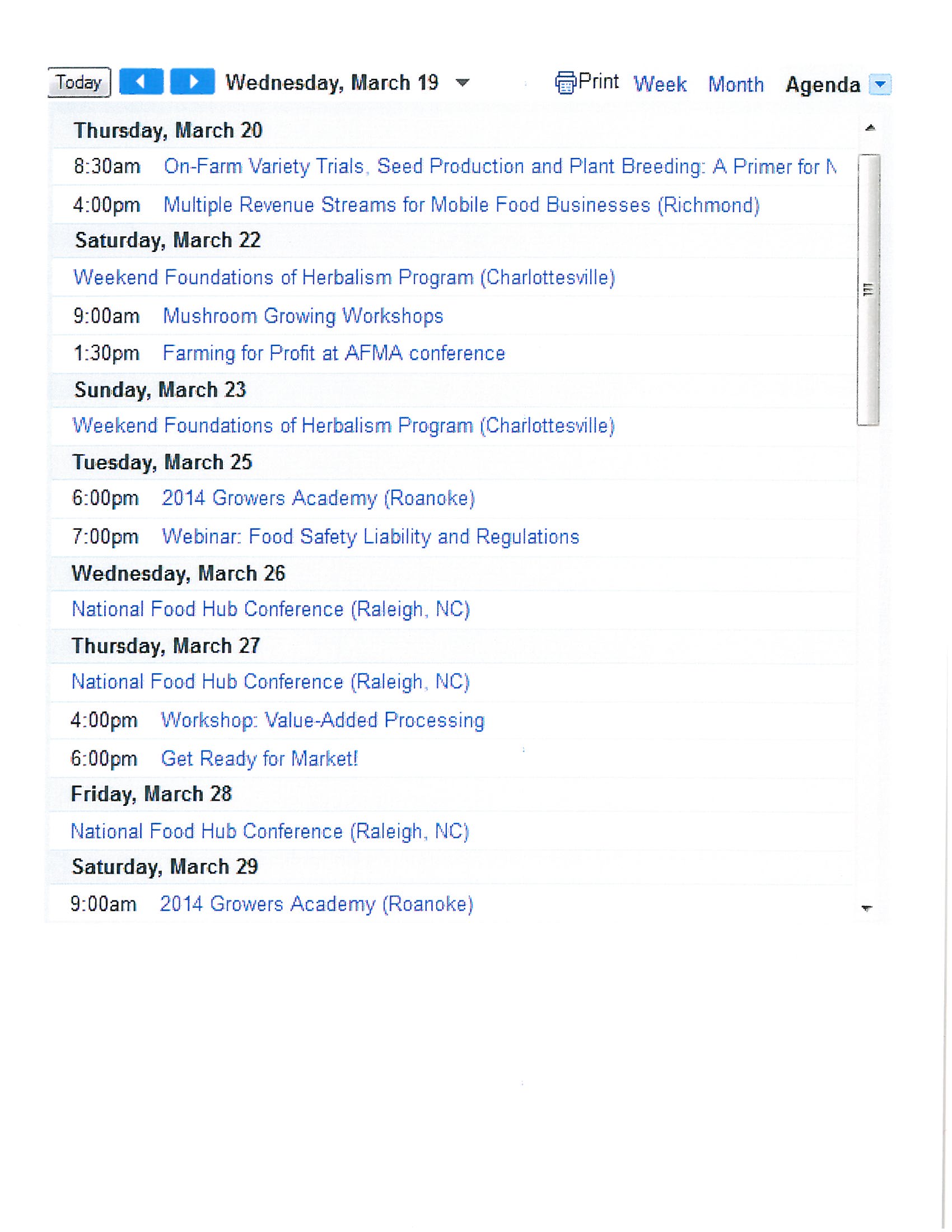Governor McAuliffe Announces $565,000 in USDA Specialty Crop Block Grants Available for Virginia Agricultural Interests
~Request for Applications Now Open, Deadline for Submittal is April 2, 2015~
VDACS will give priority to projects with the sole purpose of enhancing the competitiveness of specialty crops as they pertain to the following issues:
• Increasing child and adult nutrition knowledge and consumption of specialty crops;
• Improving efficiency and reducing costs of distribution systems;
• Assisting all entities in the specialty crop distribution chain in developing Good Agricultural Practices, Good Handling Practices, and Good Manufacturing Practices;
• Investing in specialty crop research, including organic research to focus on conservation and environmental outcomes;
• Enhancing food safety;
• Developing new and improved seed varieties and specialty crops, pest and disease control;
• Developing organic and sustainable production practices;
• Developing local and regional food systems; and
• Improving food access in underserved communities.
Guidelines, instructions, and the application for the USDA Specialty Crop Competitive Grants are available online at http://www.vdacs.virginia.gov/marketing/scrop.shtml (click on Application Form to apply), via e-mail to Melissa Ball atmelissa.ball@vdacs.virginia.gov, or at VDACS, 102 Governor Street, Richmond, VA 23219.
According to a 2013 economic impact study conducted by the Weldon Cooper Center for Public Service at the University of Virginia, agriculture and forestry are two of Virginia’s largest private industries with a combined economic impact of $70 billion annually. Agriculture generates more than $52 billion per annum, while forestry contributes more than $17 billion. The industries also provide more than 400,000 jobs in the Commonwealth. More information about the Weldon Cooper Center’s study can be found at: http://www.coopercenter.org/node/2/publications/economic-impacts-agriculture-and-forestry-virginia-revised-2012




